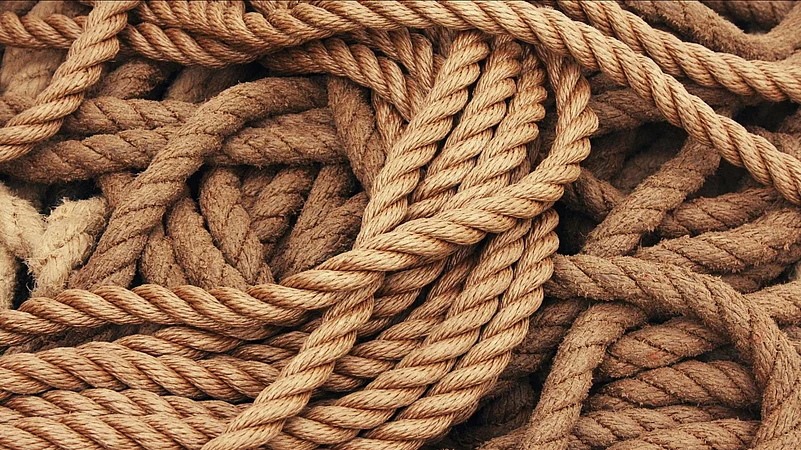India has imposed port restrictions with immediate effect on the import of jute and allied fibre products from Bangladesh to curb unfair trade practices and protect the domestic jute industry.
The Directorate General of Foreign Trade (DGFT), under the Commerce Ministry, issued the order on June 27, reported PTI. The decision includes all land and seaports across India, prohibiting Bangladeshi jute product imports except through Nhava Sheva. The government is also taking steps to ensure Bangladesh does not circumvent the aforesaid restrictions by routing their jute exports through third countries, according to informed sources.
Under the South Asian Free Trade Agreement or SAFTA provisions, jute from Bangladesh has a duty-free access to India. However, the Indian jute industry has suffered from the dumped and subsidised imports of jute products, specifically yarn, fibre and bags from Bangladesh, according to informed sources.
There is credible evidence that Bangladeshi jute exports continue to benefit from state subsidies extended by the Government of Bangladesh. In response to these concerns, the Directorate General of Anti-Dumping and Allied Duties (DGAD) conducted detailed investigations and imposed Anti-Dumping Duty (ADD) on jute/goods originating from Bangladesh.
However, the imposition of ADD has not yielded a substantial reduction in imports. Various large exporters from Bangladesh managed to circumvent ADD through technical exemptions, exports through exempted firms (whose exports go beyond their production capacity) and misdeclaration to secure higher subsidies within India,” reported ET.
Impact on Domestic Industry
According to ET, imports, which stood at $138 million in FY 2016-17 before the levy of ADD, marginally declined to $117 million in FY 2021-22 and have since risen to around $144 million in FY 2023-24.
As a result, prices of jute in India fell below ₹5,000 per quintal for FY 2024-25, against the minimum support price (MSP) of ₹5,335, creating a vicious payment/ liquidity cycle.
Additionally, the influx of underpriced finished jute goods from Bangladesh has resulted in significant under-utilisation of capacity in Indian mills, threatening their long-term viability, according to jute industry experts.
This ban comes as a blow to Bangladesh’s exporters as only one per cent of the total exports of these products are being carried out through the sea route. Mustafa Abid Khan, a former member of the Bangladesh Trade and Tariff Commission (BTTC) and a trade analyst, told Prothom Alo, “The seven Indian states known as the ‘Seven Sisters’ do not have any seaports.
Due to India’s restrictions, Bangladesh’s exports to those states will effectively come to a halt. That’s because it is difficult for Bangladesh to export to those regions via sea and then by road.”
India’s restrictions on Bangladeshi jute imports coincide with Bangladesh’s tilt towards China. According to TOI, this shift is seen as a response to Bangladesh strengthening its ties with China, potentially affecting bilateral trade dynamics and straining economic relations between the two nations.

































